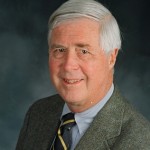 Let me be frank with you, Frank: you are a bystander, a passive yet sensitive observer of the daily stream, but frustratingly disconnected!
Let me be frank with you, Frank: you are a bystander, a passive yet sensitive observer of the daily stream, but frustratingly disconnected!
“Frank,” of course, is Frank Bascombe, Richard Ford’s complex and compelling character who has now reached the age of 68. Ford first introduced him to us in The Sportswriter in 1986, when he, his wife and son moved from New York to “Haddam,” New Jersey (in reality Princeton, without the university) as he tried a new career as a novelist. That failed, his wife divorced him and he lost his son.
Frank resurfaced in Independence Day in 1995, when he took his second son for a quick tour of the Halls of Fame in Springfield and Cooperstown, just before the Fourth of July. This one included a delicious put-down of the town of Deep River! He had then become a real estate agent in Haddam.
And in our Millennium Year of 2000, in The Lay of the Land (published in 2007), Frank found a new wife, only to see her depart, had prostate surgery and, in this three-day story, tried to celebrate Thanksgiving as a 55-year-old in his new home on the Jersey Shore, still working in real estate.
Let Me Be Frank With You is the fourth in the series (doesn’t this remind you of John Updike’s Rabbit Angstrom?) and we find Frank back in Haddam, his second wife returned, as he interacts, still passively, with four unusual characters.
The first is Arnie Urquhart, a college classmate whose Jersey Shore house (it used to be Frank’s) has been demolished by Hurricane Sandy (Sandy, it seems, is a major character in this set of novellas). The second is Charlotte Pines, a woman he finds knocking on his Haddam door, an ex-resident of that house in which her family was killed. Then we reconnect with Ann Dykstra, his former wife, who has returned to Haddam to an “extended care facility” to cope with her onset of Parkinson’s. And finally we share Frank’s visit with Eddie Medley, an old friend who is in the final stages of dying.
Throughout these sessions Frank remains the foil, yet a remarkable observer of every facial tic, bodily motion and surrounding sights, smells and sounds: crows jousting in a tree, a trash truck grinding debris, auto horns, laughter next door. He just never seems connected. He’s open to everything …
But his stock answers in conversation are: “I don’t know. Maybe.” “It makes me realize how remote I am.” “All is frankly enigma.” He is an aloof reporter experiencing a syncopation of senses and sounds, in the middle of brief conversations.
Frank acknowledges his advancing age: “ . . . the ‘gramps shuffle’ being the unmaskable, final-journey approaches signal.” And “as you get older things slide away, like molasses off a table top.” And “ . . . life’s a matter of gradual subtraction.” And someone asking of you “Are you okay?” He thinks: “No more grievous words can be spoken in the modern world.”
His self-description: “I am: a man who doesn’t lie (or rarely), who presumes nothing from the past, who takes the high, optimistic road (when available), who doesn’t envision the future, who streamlines his utterances (no embellishments) and in all instances acts nice.”
But Frank winds into all this a marvelous sense of humor, often acidic: An “extended care facility: Nothing’s bleaker than the stingy, unforgiving one-dimensionality of most of these places; their soul-less vestibules and unbreathable antiseptic fragrances, the dead-eyed attendants and willowy end-of-the-line pre-clusiveness to whatever’s made life be life but that now can be forgotten.”
Hurricane Sandy seems to be the primary stimulant of Frank’s aging recollections. As he notes, “There’s something to be said for a good, no-nonsense hurricane, to bully life back into perspective.”
But Ford’s Frank Bascombe lives on! Will we see a fifth view of him one day soon … perhaps at 80?
Editor’s Note: Let Me Be Frank With You by Richard Ford is published by Harper Collins, New York 2014.

About the author: Felix Kloman is a sailor, rower, husband, father, grandfather, retired management consultant and, above all, a curious reader and writer. He’s explored how we as human beings and organizations respond to ever-present uncertainty in two books, ‘Mumpsimus Revisited’ (2005) and ‘The Fantods of Risk’ (2008). A 20-year resident of Lyme, he now writes book reviews, mostly of non-fiction that explores our minds, our behavior, our politics and our history. But he does throw in a novel here and there. For more than 50 years, he’s put together the 17 syllables that comprise haiku, the traditional Japanese poetry, and now serves as the self-appointed “poet laureate” of Ashlawn Farms Coffee, where he may be seen on Friday mornings. His wife, Ann, is also a writer, but of mystery novels, all of which begin in a bubbling village in midcoast Maine, strangely reminiscent of the town she and her husband visit every summer.